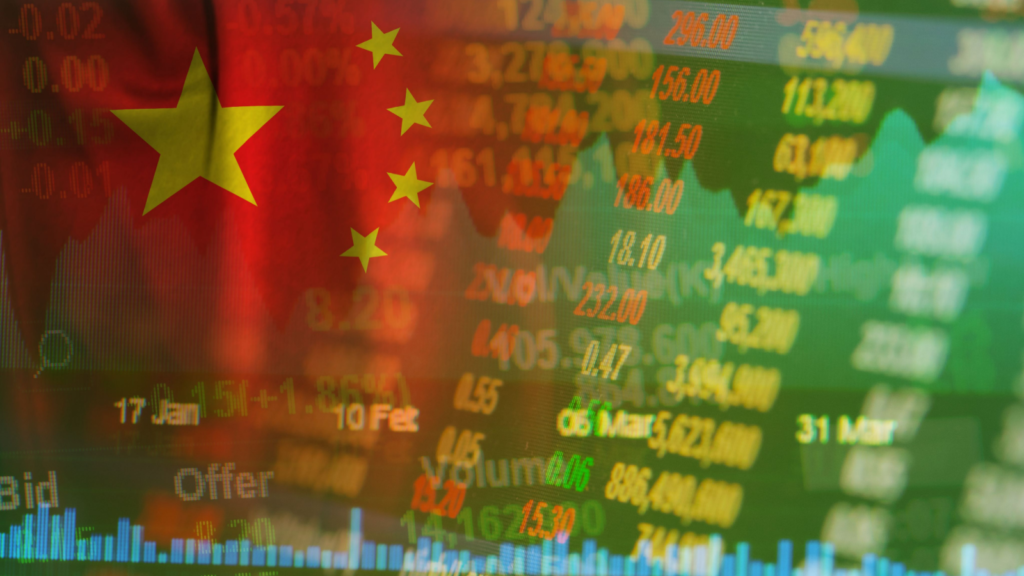Things seem to be getting worse in China. In recent months, Chinese President Xi Jinping has consolidated his grip on power. He’s pledged to return China’s economy to its socialist roots and move away from the free market path it had been on. This follows more than a year of crackdowns on publicly traded Chinese companies, notably technology firms, that eroded stock prices.
On top of the political retrenchment, China continues to implement widespread lockdowns and manufacturing shutdowns as part of its zero-Covid policy. This is slowing the world’s second-largest economy and eroding consumer spending in the nation of 1.4 billion people. And this is to say nothing of the ongoing tit-for-tat economic war being not so quietly waged between China and the U.S.
The White House recently moved to limit American semiconductor companies’ exposure in China. And Wall Street regulators have been threatening to delist Chinese stocks that trade on American exchanges. Throw in growing calls to ban Chinese social media app TikTok, and one gets the impression that this is not a sector of the market you want to be in.
In particular, here are three Chinese stocks to avoid.
Alibaba (BABA)

There are some professional traders and analysts on Wall Street who have said Alibaba (NYSE:BABA) is the only Chinese stock that American investors should own. While that might have been true at one time, it certainly isn’t the case today. The e-commerce company founded and run by Jack Ma is often referred to as the Amazon (NASDAQ:AMZN) of China. But the two companies’ fortunes have diverged sharply since the pandemic.
Alibaba has been subjected to a brutal regulatory crackdown by Chinese authorities. The company had its expansion plans squashed, was hit with a record $2.8 billion antitrust fine, and Ma even went into hiding for a period of time. Throw in Covid-19 lockdowns and declining consumer spending throughout China, and BABA stock has fallen 41% this year. And it’s down nearly 80% from its all-time high of around $320 a share, reached in October 2020. Over the past five years, shares are down 62%. For comparison, AMZN stock is up 78% during that time.
Investors who own Alibaba shares should sell them. Those who don’t should put BABA on their list of Chinese stocks to avoid.
Nio (NIO)

Next up on our list of Chinese stocks to avoid is electric vehicle maker Nio (NYSE:NIO). Hailed as China’s answer to Tesla (NASDAQ:TSLA) and a future global leader in the EV space, NIO stock went on quite a run. Its share price rose an astounding 3,000%, climbing from a low of $2.11 a share in March 2020 to an all-time high of just below $67 in January 2021.
My how the mighty have fallen. Shares are 83% below their high and down 70% in the past year, with no bottom in sight.
The problems with NIO stock can largely be attributed to missed production and delivery targets that have resulted from Covid-19 lockdowns. Ongoing lockdowns in and around Shanghai have led Nio to shut down its manufacturing facilities on multiple occasions. This hurt sales and curtailed the company’s global expansion plans, mainly in Europe, where Nio established a bulkhead last year.
Other problems have included the death of two people who were killed in one of the company’s test vehicles and a lawsuit filed by rival Volkswagen’s (OTCMKTS:VWAGY) Audi division over an alleged trademark infringement.
All these problems are likely to continue to weigh on NIO stock. I wouldn’t go near it.
Baidu (BIDU)

Lastly, we come to the company many people view as the Google of China, internet and artificial intelligence giant Baidu (NASDAQ:BIDU). It wasn’t long ago that Baidu was hailed as the most sophisticated and advanced technology company in China. The company’s share price rose 287% from its pandemic low to a high just under $355 in February 2021. Future growth prospects looked limitless. Some euphoric analysts even predicted Baidu’s online search engine would surpass Google and its AI applications would change life as we know it.
Not so fast, though. Enter Beijing’s crackdown on tech companies, Covid-19 lockdowns, a slowing economy and souring sentiment among American investors, and BIDU stock has plummeted 75% from its high, including a 40% year-to-date drop. Over the past five years, shares are down 48%. For comparison, Google parent Alphabet (NASDAQ:GOOGL) is up 80% during that time.
The big plunge in BIDU stock shows no signs of reversing anytime soon. Investors who might be tempted to buy the dip should think twice and add this name to your list of Chinese stocks to avoid instead.
On the date of publication, Joel Baglole did not have (either directly or indirectly) any positions in the securities mentioned in this article. The opinions expressed in this article are those of the writer, subject to the InvestorPlace.com Publishing Guidelines.
